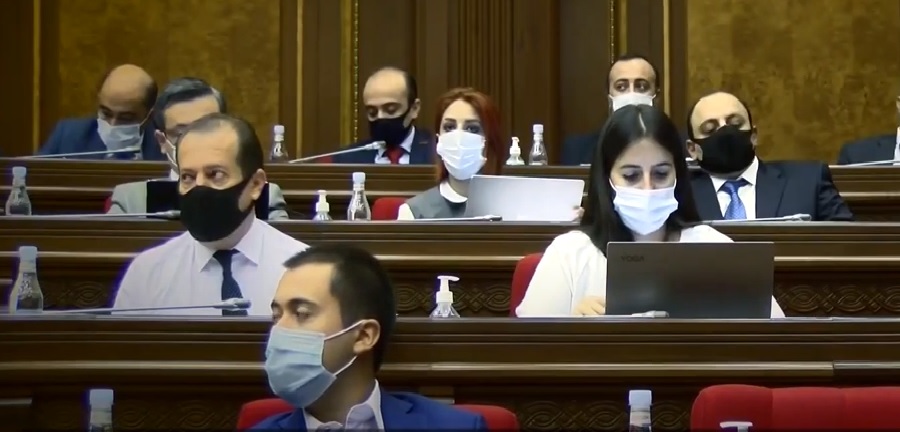On April 9 the Standing Committee on State and Legal Affairs of the National Assembly has organized parliamentary hearings on “Amendments and restatements to be made in the Law of the Republic of Armenia on Civil Code”, “Amendments to be made in the Law of the Republic of Armenia on Criminal Code” and “Amendments to be made in the Law of the Republic of Armenia on Criminal Procedure Code”. The package of the drafted laws was adopted on the first hearing in March 18. During the discussions the Committee to Protect Freedom of Expression presented its position.
According to the projects the 135 (libel) and 136 (insult) articles of the Criminal Code of the Republic of Armenia are annulled and instead the punishment for the dissemination of false information humiliating the person’s reputation, dignity and honor, is defined according to the Civil Code of the Republic of Armenia.
These projects were on the discussion board since 2009 and were disputed by Media experts and journalists. The experts consider positive the annul of the “libel” and “insult” articles from the Criminal Code of the Republic of Armenia, at the same time emphasizing that the drafted law on “Amendments and restatements to be made in the Law of the Republic of Armenia on Civil Code” (this is the main draft in the package the rest two are, supplementary) does not define the meaning of “libel” and “insult” and does not offer the mechanisms to set the punishment for moral humiliation.
This legal initiative needs to be in detailed analyzed and observed in order to disclose all the possible defects and risks hidden in the formulation of law. Currently, let’s be satisfied with a brief note that the “Punishment of the humiliation of honor, dignity and reputation” are deeply contrary to Article 9 of the Law of the Republic of Armenia on Dissemination of Mass Information. According to the second point of that article on “The person implementing media activity is exempt from the liability of disseminating information if:
- the information is received from a news agency
- the information source is from a public statement or from a response of the representative made by the contesting party or pertaining documents
- the information is a literal or conscientious reproduction of the information contained in a public statement, official documents of state bodies, other media product or work of authorship and contains a reference to the original source.
In the supplementary offered in the Civil Code of the Republic of Armenia “real facts are not commented as libel”
a) if they were expressed by the participant of the trial in the expression on the judicial circumstances of the current case
b) if the expression with its content made on that current situation is considered with the public interest and if the person can prove that has done steps to clarify the sources of truth and justification as well as has presented the facts in a balanced and genuine manner.”
As a result it appears that Media can only put citations which have been made in the court without being frightened on punishment for “libel” and “insult” because the authors of the drafted law has defined more penalty for the media than for the person who makes the expression. Thus, according to the draft law for libel the fine for the person is in the amount of 500 minimal salaries, for Media the fine is in the amount of up to 1000 minimal salaries and for the implementer of Media the fine is up to 2000 minimal salaries.
This is because of this reason that experts consider that the adoption of this law will be a stick for Media.
Hereafter, the authors of the drafted law and the Standing Committee on State and Legal Affairs of the National Assembly are willing to work with the representatives of journalist’s organizations in order to annul the possible threats of the freedom of Media. We only need to hope, that the committee will not consider the participation of the representatives as formality and will discuss the suggestions aimed to the improvements on the drafted law.








